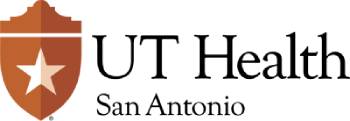UT Health San Antonio alumna is first woman dean of UConn’s dental school
By Kate Hunger

Learning the latest technology has always thrilled Sharon M. Gordon, D.D.S. ’91, dean of the University of Connecticut School of Dental Medicine.
“When I was in dental school, we were the first class to have fiber optics on our hand pieces, which means the very bright headlight for your drill, essentially,” she recalled. “We thought that was so great because it really helped illuminate the oral cavity and helped you do a good job.”
Now, as the first woman appointed dean at UConn’s dental school, Dr. Gordon remains excited about all the possibilities technology offers. Only this time, she is considering how best to integrate those advances into the curriculum while making sure students still learn traditional approaches.
“Now we see digital impressions, machines that mill and 3D print your restorations, the use of lasers, and of course the electronic health record, which is revolutionizing medical care and will revolutionize dental care as well,” Dr. Gordon said. “There is so much—robotics, virtual reality—all of these things are really going to change the practice of dentistry.”
The future of dentistry includes precision health, she said, with biomedical and dental research already studying targeted treatment for patients.
“Right now, it’s a very surgical, clinical practice,” she said about dentistry. “A lot of it has to do with removing decay, replacing lost structure. But if you could actually, in some other way, have the body fight these things and regenerate itself instead, that would change the practice of dentistry. It’s exciting where science is taking clinical practice.”
Changes in the nation’s health care delivery system require that dentistry keep pace and serve the patient, she noted.
“We don’t want to be left behind as the cottage industry tooth technicians,” she said. “We want to move forward with medicine and be partners in the overall health of the patient.”
Integrating oral health into overall health is one of Dr. Gordon’s top priorities as dean. One project underway at UConn that furthers that aim is an effort to integrate patients’ electronic health records at the hospital, dental school and medical school.
Progress in numbers

Dr. Gordon has seen a remarkable change in the representation of women in the field of dentistry since she graduated from UT Health San Antonio. Times have indeed changed: The percentage of female graduates from U.S. dental schools has increased from 4.6 percent in 1976 to 49.6 percent in 2017-2018, according to the American Dental Association.
While Dr. Gordon applauds the gains in admissions and graduates, she sees room for improvement. Although she said more women have taken leadership positions within organized dentistry, in dental education and in dental research, Dr. Gordon believes women still have ground to make up when it comes to serving as department chairs and deans of dental schools.
“I think it’s really good for our students because I definitely see a very healthy mix in the classroom in terms of women and men, and I think as we have more women exemplars as faculty and in leadership roles, the women are seeing this,” Dr. Gordon said. “When it’s no longer unusual, that will mean we have gotten our job done and are achieving equity. I think we have a little way to go, but I think we are making strides there.”
Finding a future in dentistry
Dr. Gordon found her future profession through a vocational program at her high school that enabled her to work at a dental practice in her hometown of Lewisville, Texas. She answered phones, scheduled appointments and kept track of payments and deposits. Along the way, she learned about how the practice worked, and she liked what she saw.
“I really enjoyed interacting with patients and felt I could contribute to society by providing oral health care. I thought I was going to be in practice,” she said.
Dr. Gordon’s career path took her from private practice to research, including at the National Institutes of Health, where she served in various research roles. But she eventually found her ideal home in academics, which enabled her to combine research and patient care. Before her arrival at UConn, Dr. Gordon served as professor and chair of the Department of Foundational Sciences and associate dean for innovation and discovery in the School of Dental Medicine at East Carolina University.
“When I was a student doing dental research, my goal was to graduate and never step foot in a dental school again,” recalled Dr. Gordon. “Now I see academics as a big opportunity to be in a group practice, but your business is not only patient care, it is also educating the next generation to provide patient care. It’s a win-win. Academics is a perfect environment for me.”
This spring, Dr. Gordon is looking forward to starting a clinical trial on patients with head and neck cancer, a continuation of her long-standing research into the prevention of mucositis, a painful condition in the oral cavity caused by chemotherapy.
She’s also ready to be back in front of students.
“I love to be in the classroom and I really miss it,”she said.
